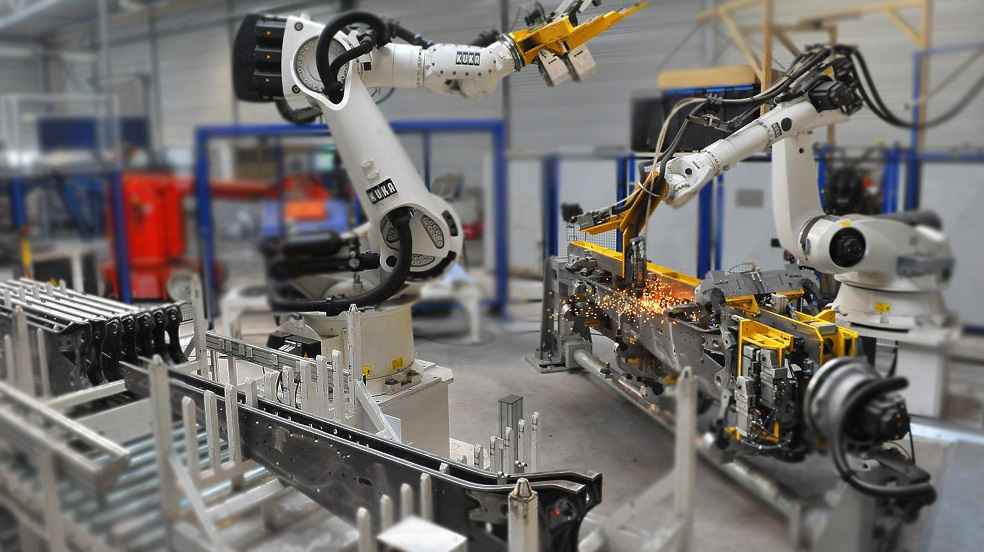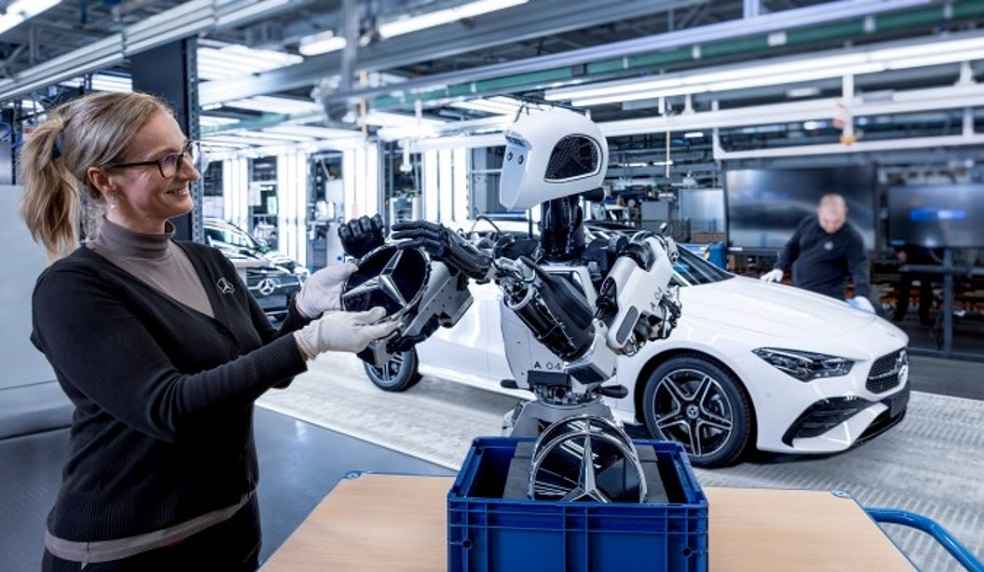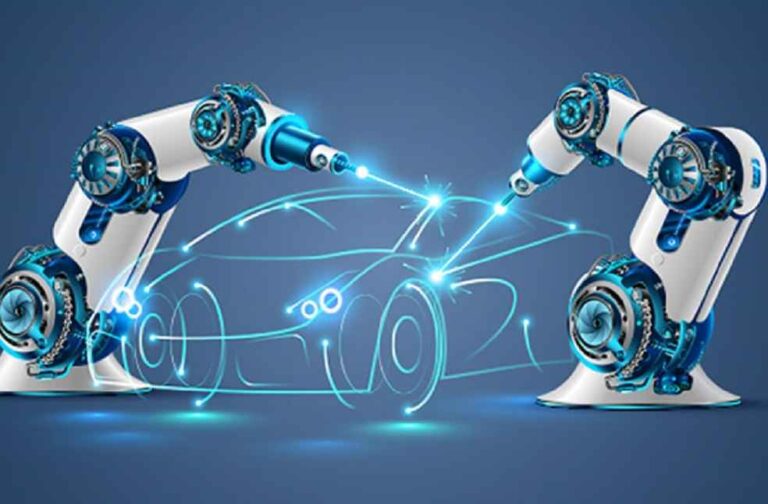The auto industry, on the verge of a transformative revolution, is experiencing significant reshaping by robotics, a recent GlobalData research report indicates. Titled ‘Robotics in Automotive,’ this comprehensive study reveals how automation fundamentally alters automotive manufacturing dynamics, enhancing efficiency, precision, and innovation.
Notably, the application of robotics spans from optimizing assembly lines to developing autonomous vehicles (AVs), potentially redefining vehicle manufacturing and operation processes.
Joseph Simpson, Associate Thematic Intelligence Analyst at GlobalData, asserts, “Automation is the fastest way to improve productivity for automotive manufacturers.” In contemporary production settings, robots adept at executing repetitive and hazardous tasks collaborate with human personnel.

These robots, designed for optimal operation, diverge markedly from human traits in both appearance and functionality. Such technological integration not only escalates precision and diminishes errors but also significantly elevates safety standards.
Yet, the expansion of automation and robotics introduces formidable challenges. The emergence of AVs necessitates sophisticated artificial intelligence technologies for navigation and intricate decision-making. Simpson notes, “The technological shift towards industrial automation also presents challenges, including job displacement and the need for workforce reskilling.”
Additionally, firms face complex regulatory landscapes, especially concerning AVs, where questions over liability in accidents and cybersecurity vulnerabilities persist.

Despite these obstacles, GlobalData’s report views the future positively. It identifies multiple challenges within the automotive sector, including environmental, social, and governance (ESG) issues, the CASE (Connected, Autonomous, Shared, Electric) megatrends, geopolitical tensions, labor shortages, cost efficiencies, high inflation, and supply chain disruptions.
Robotics is anticipated to play a pivotal role in surmounting these challenges, pushing technological boundaries and continuing the industry’s evolution toward innovation and growth.
This analysis concludes that while substantial difficulties lie ahead, the continued progress of robotics is set to catalyze a new epoch of productivity and technological advancement in the automotive sphere.
LATEST | EU Automakers Push for Realistic Green Policies at Key Roundtable





